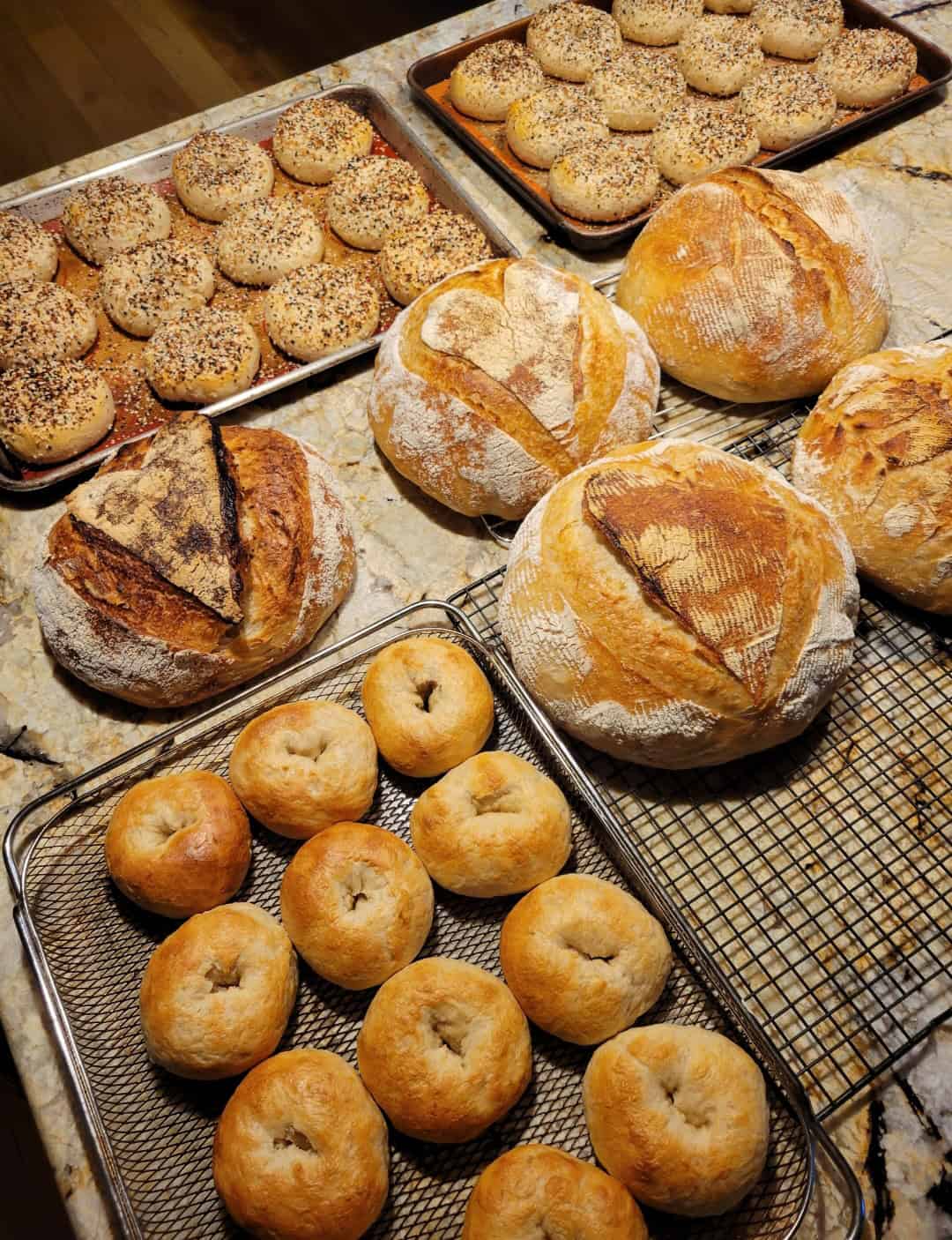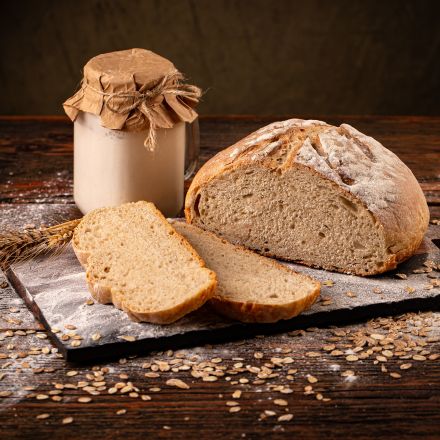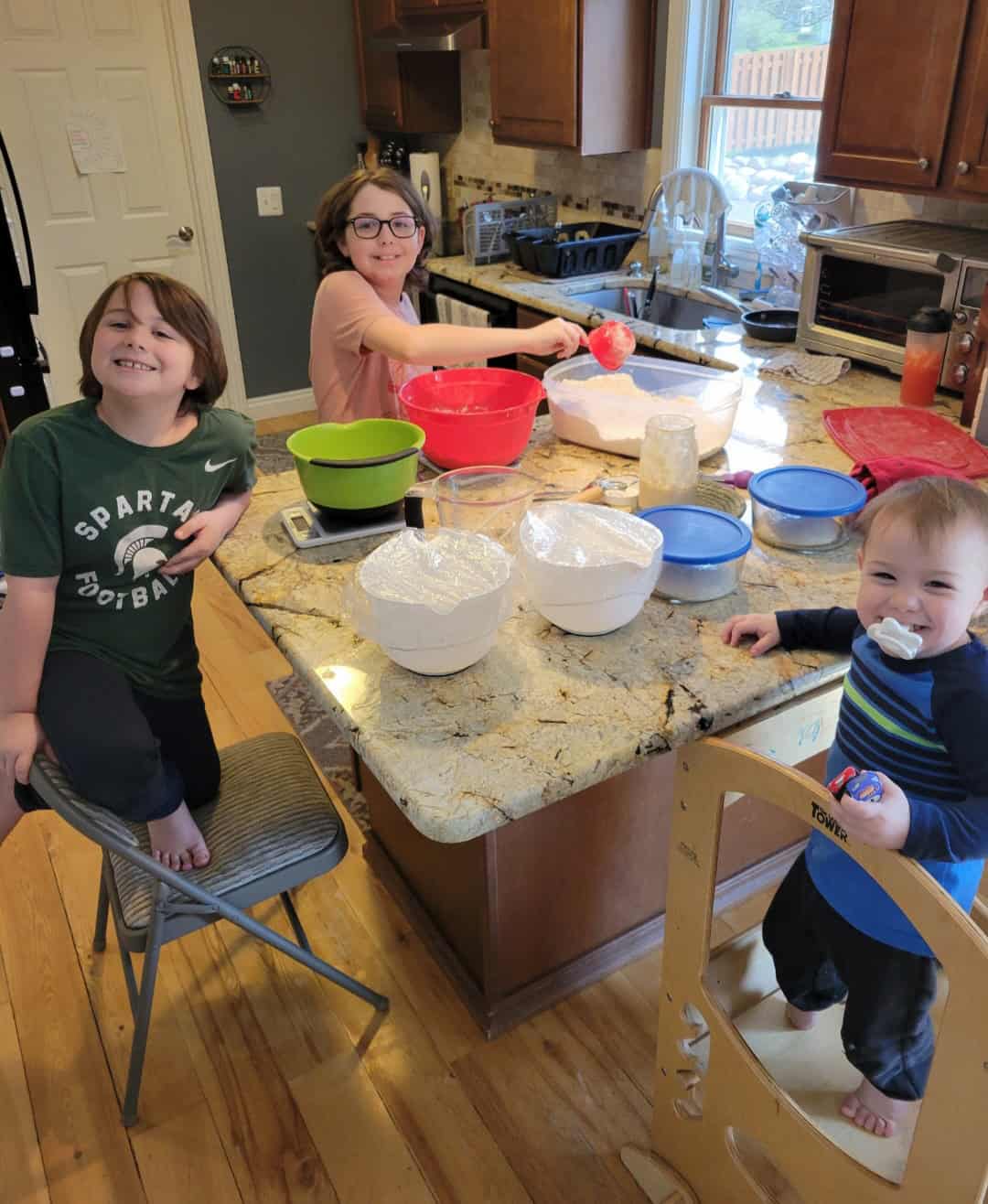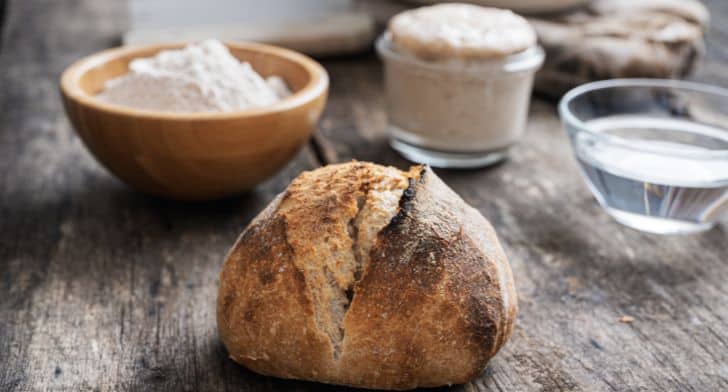In recent years, sourdough bread has surged in popularity not just as a culinary delight but also as a fascinating subject of scientific inquiry and educational exploration. Beyond its delightful taste and texture, sourdough represents a complex interplay of microbiology, chemistry, and culinary artistry as well as lessons we can use in everyday life.
Nurturing the Starter: A Lesson in Patience
Introducing children to sourdough begins with the starter—a living culture of wild yeast and bacteria. From the initial mixing of flour and water to daily feedings and observations, children learn the importance of patience and persistence as you wait for the starter to develop its characteristic aroma and vigor, which can take days or even weeks.
Responsibility and Commitment: Caring for the Starter
Regular feedings nurture the microbial community, promoting a healthy balance of yeast and bacteria essential for leavening the bread. This nurturing process instills a sense of responsibility as children learn to care for a living organism that directly impacts the quality and flavor of their bread.


Chemistry
Fermentation lies at the heart of sourdough bread baking, making it a perfect subject for studying chemistry. Children can investigate the biochemical reactions that occur during fermentation, such as the conversion of sugars into carbon dioxide and ethanol by yeast, and the production of lactic acid by bacteria. This practical application of scientific principles can spark curiosity and deepen their understanding of natural processes.
Math and Measurement: Learning Through Baking
Mathematics comes into play as children measure ingredients, calculate hydration levels, and scale recipes. They practice arithmetic skills through measurements and conversions, apply percentages to adjust hydration ratios, and use fractions to divide dough for shaping.
Creativity and Expression: Artisanal Baking Techniques
Sourdough baking encourages creativity and self-expression as children experiment with shaping dough and scoring patterns. They develop fine motor skills and artistic flair while learning traditional artisanal techniques. Whether crafting round boules or decorative loaves, children take pride in their creations and enjoy sharing their baked goods with family and friends.
Bonding and Communication: Quality Time Together
Beyond the kitchen, baking sourdough fosters bonding and communication between parents and children. It’s a time to share stories, laugh over mishaps, and celebrate successes together. Baking becomes a shared experience that strengthens relationships and creates lasting memories.
Resilience and Reflection: Learning from Challenges
Not every bake will be perfect, and mistakes are part of the learning process. Baking sourdough teaches children resilience as they face challenges, troubleshoot problems, and adapt their approach. They learn to embrace setbacks as opportunities for growth and reflection, developing problem-solving skills that serve them well in all aspects of life.
A Delicious Blend of Learning, Creativity, and Life Skills for Children
Sourdough bread making is a wonderful mix of hands-on exploration and interdisciplinary inquiry, where children can not only master academic concepts but also develop essential life skills such as creativity, collaboration, critical thinking, and responsibility. As the aroma of freshly baked bread fills the kitchen, so too does the warmth of shared experiences and the joy of learning together—a recipe for cherished memories and life-long lessons.








